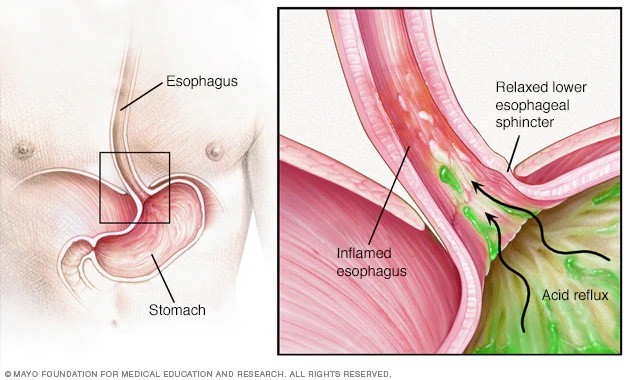antireflux surgery
Anti-Reflux Surgery with Dr. Thoman
Gastroesophageal reflux disease (GERD) is incredibly common in the western world. 20-30% of adults experience it at least monthly. Fortunately, there are very effective medicines that can eliminate most of the acid produced in the stomach. Despite taking maximal medical therapy some people still suffer from GERD symptoms to the point that surgery makes sense. Additionally, some people have large hiatal hernias that create symptoms that no pill can fix and these need to be repaired. Many different surgical and non-surgical options have been developed over the years. Dr. Thoman has studied all of them carefully and performed all of the ones that have been proven effective and will tailor the approach to what suits you best.
What Is GERD?
Your body has an incredibly complex mechanism for keeping the contents of the stomach from going back up the esophagus. Like any complicated system there is a chance part of it will fail. When that happens the acidic environment in the stomach burns the delicate lining of the end of your esophagus creating the sensation of heartburn. The contents of your stomach can also regurgitate back up into your mouth. If that’s not enough, stomach contents in your esophagus can cause other symptoms such as cough, voice changes, chest pain, and breathing problems.

Treatment Options
The first step is always to try medications that will decrease the acid in your stomach. Most people with mild symptoms can just take something like TUMS. This is very safe, but when larger more frequent doses are required an H2 Blocker like Pepcid or Tagamet is tried. These have some concerning side effects, especially if you are over 50. A stronger and more popular option currently is a Proton Pump Inhibitor (PPI). These often take care of your symptoms with just 1 pill a day. It is critical to take them 30 minutes before a meal or they don’t work very well. These also have some concerning side effects if taken for a long time and some people don’t want that risk. Others just don’t want to take a pill every day or are taking as much as is safe and are still getting symptoms, that’s where surgery comes in.

require general anesthesia, and typically take less than an hour. You go home the same or next day and are sore for a few days. You may need to stay on a liquid diet for 2 weeks while the swelling in your new valve goes down. The basic principles of every procedure are to repair any hiatal hernia, make sure the esophagus is back down in the abdomen where it belongs, and create a new valve out of your stomach to keep things from coming back up. You may need a 360º valve or Nissen Fundoplication, or a 270º valve called a Toupet. You may need the esophagus anchored using a modification of the Hill procedure. You may need the hernia repair reinforced with biocompatible synthetic polymer. You may need a LINX procedure which uses a ring of rare earth magnets to strengthen the valve. The point is there are many options and we can discuss which is right for you.



